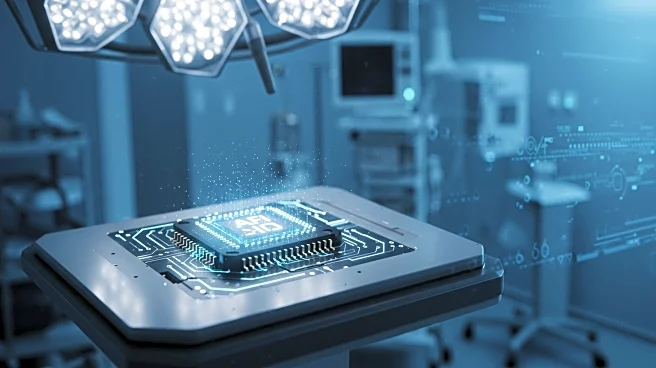What's Happening?
A study conducted in Poland has raised concerns about the potential dependency of doctors on artificial intelligence (AI) during medical procedures, specifically colonoscopies. The research found that gastroenterologists were about 20% less effective at detecting polyps and abnormalities when not using AI assistance, after becoming accustomed to the technology. The study, published in Lancet Gastroenterology and Hepatology, suggests that even short-term use of AI can lead to reliance, potentially affecting doctors' diagnostic skills. While AI is increasingly used in routine medical scans, the findings highlight the need for careful integration of AI in clinical practice.
Why It's Important?
The integration of AI in healthcare is transforming diagnostic processes, offering enhanced accuracy and efficiency. However, the study's findings underscore the risk of over-reliance on technology, which could diminish doctors' skills and judgment. This dependency could impact patient outcomes, as doctors may become less adept at identifying issues without AI support. The healthcare industry must balance the benefits of AI with the need to maintain and develop human expertise, ensuring that technology complements rather than replaces critical medical skills.
What's Next?
Further research is needed to explore the long-term effects of AI reliance in medical practice. Healthcare institutions may consider implementing training programs to help doctors integrate AI effectively while maintaining their diagnostic skills. Policymakers and medical educators might also develop guidelines to ensure AI is used as a supportive tool rather than a crutch. As AI continues to evolve, ongoing studies will be crucial in understanding its impact on healthcare delivery and professional development.
Beyond the Headlines
The study highlights ethical considerations regarding the use of AI in medicine, including the potential for reduced human oversight and accountability. As AI systems become more prevalent, there may be legal implications concerning liability in cases of misdiagnosis or error. Additionally, the cultural shift towards technology-driven healthcare could influence patient trust and expectations, necessitating transparent communication about AI's role in medical decision-making.









